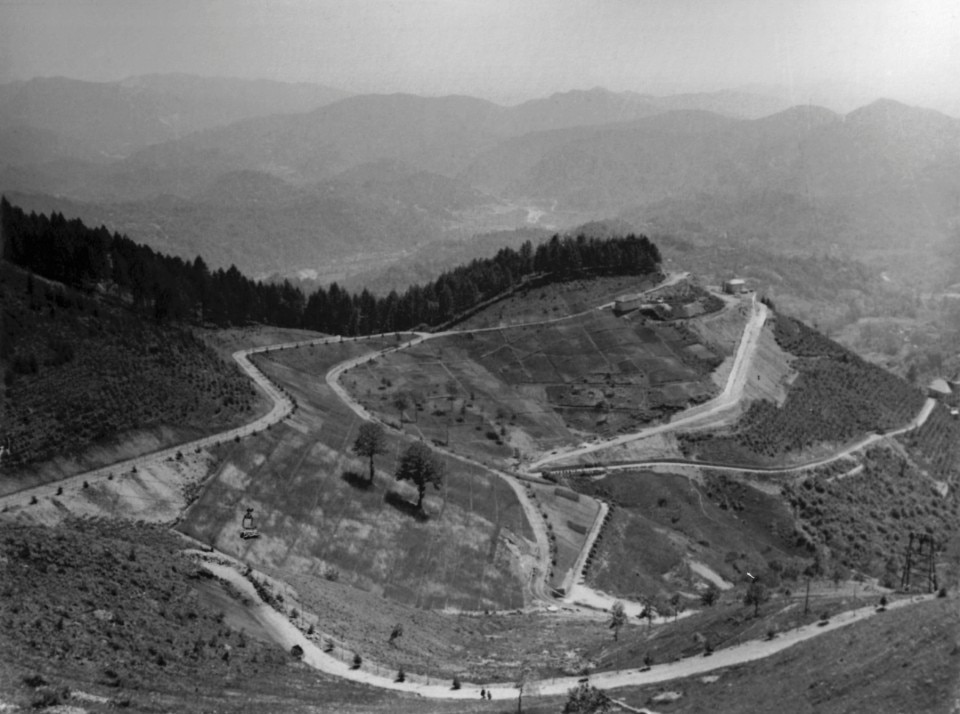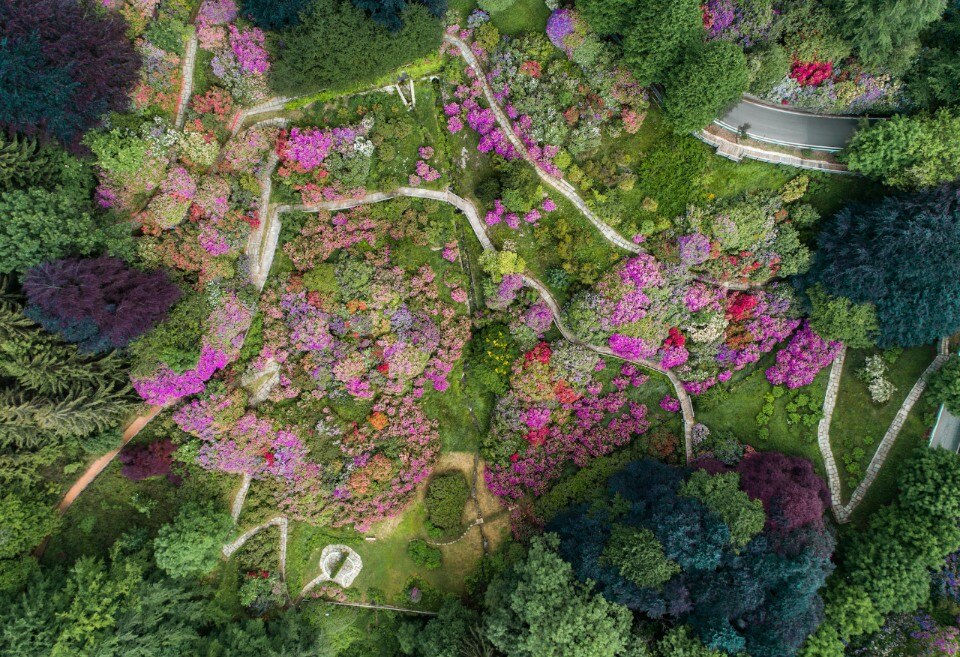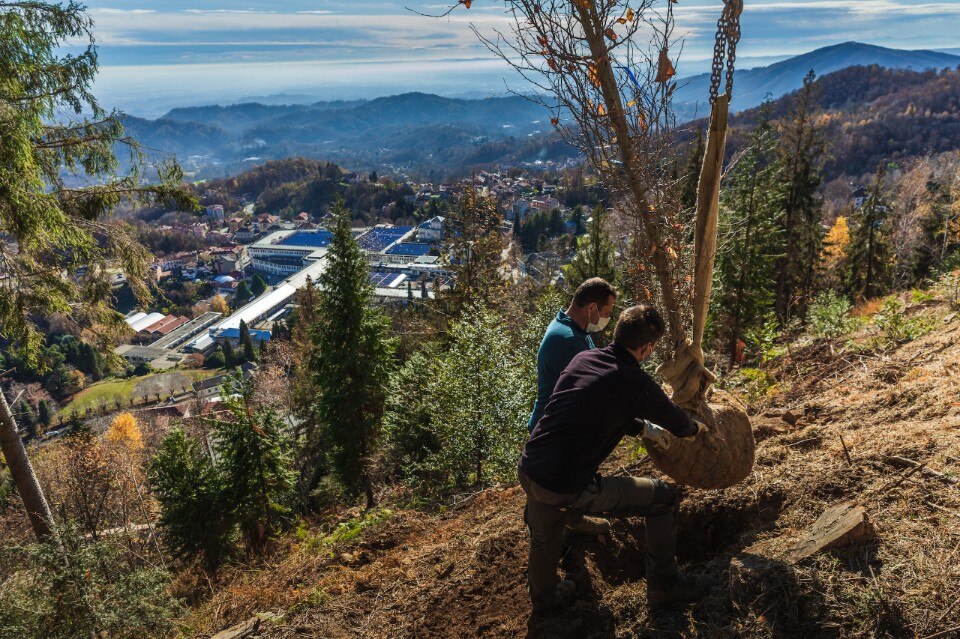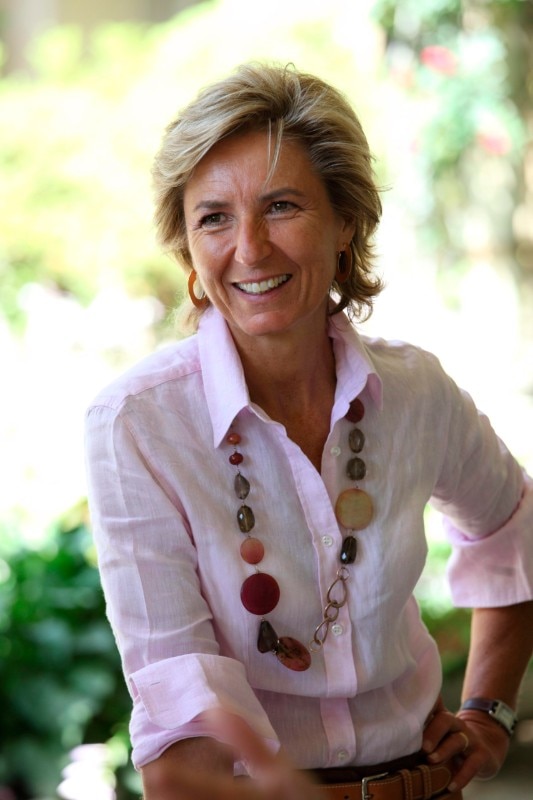“But where will I pick flowers when winter comes?” When Holderlin wrote these words, “bourgeois” was an adjective that still had a meaning. It expressed a precise way of being in relationship with others, of matching words with things, of being in the world. If that world, that mindset, that bourgeois style still existed, Anna Zegna would be a textbook example. “We’re constrained by circumstances, learning to do without. Doing without means cutting things to the essence. Not living on nothing, but setting a value on everything, especially whatever brings us inner richness. Returning to the essence means acknowledging climate change, the devastation of the earth and realising we live in an increasingly virtual world.

This is why today we feel a need for truth, real stories, direct experiences. Aromas, flavours that will become part of our experience. Respect for the seasons, the woods, the herbs the earth offers us. Because we are the earth.” In Lausanne Anna graduated in Political Science, gained her first experience with Gianni Versace and entered the family business very young. She immediately stood out for her green thinking, first developed by her grandfather Ermenegildo. She presented it to the family as their true goal and the only way to create value and look to the future.
“They all agreed. After all, my grandfather’s concept was profoundly innovative at the time, so much so that it’s still valid today. In fact nowadays we talk a lot about green policies, but in the early 20th century it was a radically innovative way of living and seeing things. Ermenegildo was thinking green when he built one of the rare examples of tourist roads for the sake of the region. He enhanced the beauty of the landscape to ensure it would increasingly be enjoyed with a view to tourism.
He had a vision of nature, the environment, the land, the physical and spiritual well-being that he gave his people and everyone who lived here as well as those who came from outside. A gesture of great vision and great generosity.” Since 1991 Anna Zegna, with the whole Zegna family, has been developing this policy and translating it into concrete, simple, daily actions. She is continuing reforestation of the mountain slopes with 500,000 conifers to create the Panoramica Zegna, her grandfather’s social and cultural heritage, which in 1993 developed into the Oasi Zegna.

“We’re moving ahead serenely but tenaciously. Last year, despite the pandemic, we planted more than 3,600 trees. All to protect and enhance the area, extending the human presence amid the mountains and promoting environmental education. The work done last winter was amazing. After coppicing, everything looked bleak, but actually, as if by a miracle, at the end of spring there was a rebirth. There were rowan trees, ferns, flowers and birches previously concealed by the vegetation, as well as new space for young beech trees planted to replace sick or fallen firs, because a copse allows other plants to spring up.”
In bourgeois thinking, the best theory is good practice. For this reason, Ms. Zegna is not talking about sustainable business, but business managed with a view to sustainability. “Sustainability has three meanings. It’s economic, because if you don’t generate value, you’ll never get anywhere. It’s social, because people who work in
any situation need opportunities to blossom, to find fulfilment, because every man and woman has to do their best to improve humanity, sharing a common purpose. Finally, the third form of sustainability is environmental, the protection of the planet, which is not somewhere outside our home, but is our home. If there was an earthquake, this beautiful building might collapse, so my home isn’t this private house but what Gilles Clément calls the Jardin Planétaire. And if we no longer respect the great garden that’s our home, then it’s the end.”

The coffee break is coming to an end, but Anna Zegna has a clear view of the idea of the end. “We’re children of our time. Our great challenge for 110 years has been to stay contemporary, both in the Oasi Zegna and in style. Today we dress differently, but still wear trousers, shirts and jackets. It’s interesting to see our identity changing over time. Our thinking about the Oasi Zegna has evolved along with the evolution of our way of living and social and environmental issues. When we speak of ‘vision’, we mean the futuristic experience of physical and spiritual well-being that people have in nature. Walking in a forest, being exposed to the beauty of the forest, the purity of air and light, impalpable elements that impact our electromagnetic and energy fields, is good for the spirit. An energy that we can’t see but that quantum physics can show us. That’s why the Oasi Zegna is increasingly visited and cherished. Do you know why there were more butterflies this year? Because we moved about less. The lockdown has taught us to listen to birdsong again amid the silence of cities usually deafened by noise. This is the way forward. Because we’re children of nature and by aligning ourselves to her, we will learn to pick flowers even in the heart of winter.”
Opening image: Anna Zegna, president of the Zegna Foundation established in 2000. The Foundation manages the Oasi Zegna, a 100 kmq natural area created in 1993 in the Biellese Alps.


